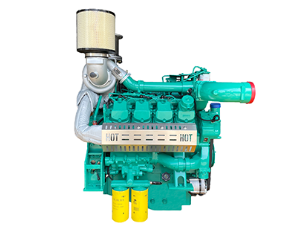- HOME
- ABOUT GOOGOL
- PRODUCTS
DIESEL ENGINE
GENERATOR SETS
- DOWNLOAD
- CASES
- NEWS
- CONTACT US
DIESEL ENGINE
GENERATOR SETS

Gas engines have strict requirements for the purity of gas.
Firstly, higher gas purity can ensure stable operation of the engine. If there are too many impurities in the gas, such as dust, particulate matter, etc., it may block the gas injection system, affecting the normal injection volume and uniformity of the gas. This not only leads to unstable engine power output, but may also cause engine shaking, stalling, and other malfunctions. For example, dust particles may accumulate at the gas nozzle, reducing the nozzle aperture and changing the speed and direction of gas injection, thereby disrupting the combustion process of the engine.

Secondly, the purity of gas has a significant impact on the combustion efficiency of the engine. Pure gas can be fully mixed with air to achieve more complete combustion. If there are impurities in the gas, it may interfere with the combustion process and reduce combustion efficiency. For example, some impurities may form deposits in the combustion chamber, affecting heat transfer and reducing the thermal efficiency of the engine. In addition, incomplete combustion can produce more harmful emissions such as carbon monoxide, hydrocarbons, etc., causing pollution to the environment.
Furthermore, the moisture content in the gas also needs to be strictly controlled. Excessive moisture may cause rusting and corrosion inside gas pipelines and engines, shortening the service life of the engine. At the same time, moisture may freeze in low temperature environments, blocking gas pipelines and valves, affecting the normal start-up and operation of the engine.
The specific requirements for gas purity may vary for different types of gas engines. For example, compressed natural gas (CNG) engines typically require a purity of over 90% for natural gas and extremely low levels of harmful gases such as hydrogen sulfide. Liquefied petroleum gas (LPG) engines also have high requirements for gas purity to ensure engine performance and reliability.
In order to meet the purity requirements of gas engines, a series of purification measures are usually taken in the gas supply process. For example, removing impurities and harmful substances from the gas through processes such as filtration, dehydration, and desulfurization ensures that the gas supplied to the engine meets quality standards. At the same time, when using a gas engine, it is also necessary to regularly inspect and maintain the gas system to ensure that the purity of the gas is always maintained within an appropriate range.
In short, gas engines require high purity of the gas. Only by ensuring the purity of the gas can the stable operation, efficient combustion, and long lifespan of the engine be guaranteed, while reducing environmental pollution.